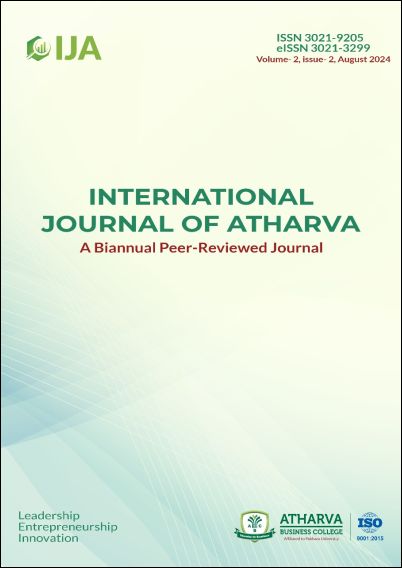Amitav Ghosh’s The Living Mountain: A Tale of Green Imperialism
DOI:
https://doi.org/10.3126/ija.v2i2.69833Keywords:
Nature, Imperialism, Hegemony, Exploitation, Tradition, MarginalizationAbstract
Amitav Ghosh’s The Living Mountain: A Fable for Our Times (2022) is a kind of ecotopian speculative fiction that posits a cryptic study of human-environment relationship in the form of a fable. This novella offers a critical insight into the harsh reality of the present anthropological capitalism and its pernicious impacts on ecology as a whole. It criticizes the growing insensitivity of human towards nature in the clamour for material advancement. Ghosh envisions a caveat against the eco-colonial hegemony. Flummoxed by the injustices meted out to the nature by men, Ghosh implores the human race to get aware of the repercussions of environmental degradation and eco-colonialism. The novella, in a form of a dream tale, tells about how the predator nations expropriate the land and loot the bountiful resources of the prey nations. In the process of gaining upper-hand, they force the native people to disclose their mystic knowledge of their ancestors making it easier for them to encroach their land and natural resources. Obliged by a pressing need to awaken the entire human race from the delusions of grandeur and its aftermath, Ghosh pens down the narrative as a commentary on the rapidly growing exploitation of nature’s treasures on an unprecedented scale and its dire consequences. Ghosh has masterfully mingled history, myth, and fiction to unmask the hegemony and hierarchy percolating through the human society and how the malice of human has disturbed harmonious cohabitation of the natives and their environment. The paper aims at exploring the detrimental effects on the environment of the land of the colonised by the colonisers. At its root, it examines how the colonizers abuse not only the natives, their land, resources but even devalue their traditional knowledge. The anthropomorphic view of the colonizers has endangered the natural resources, and if not cured, may invite an ecological crash.
Downloads
Downloads
Published
How to Cite
Issue
Section
License
Copyright (c) 2024 The Author(s)

This work is licensed under a Creative Commons Attribution-NonCommercial 4.0 International License.
This license enables reusers to distribute, remix, adapt, and build upon the material in any medium or format for noncommercial purposes only, and only so long as attribution is given to the creator.





